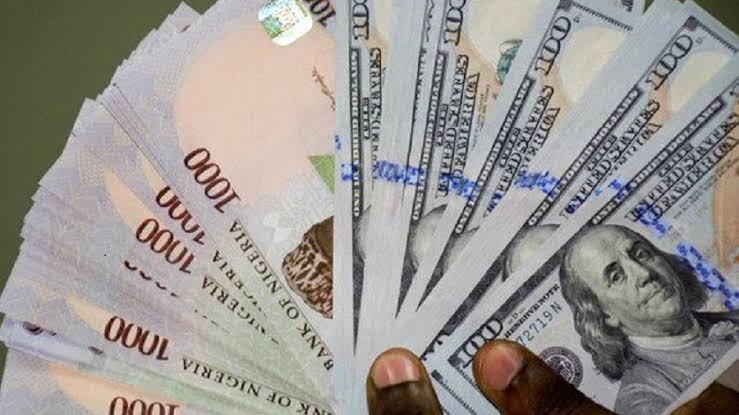The naira faced significant challenges at the official exchange window last week, weakening by 1.25% to close at 1536.89/$ by Friday.
Data from the Central Bank of Nigeria revealed that the naira began the week weak at 1,528.03/$, down from 1,517.93/$ on the previous trading day. The currency dipped further to 1532.93/$ before experiencing some recovery mid-week. However, it again fell to 1536.89/$ by Friday.
This depreciation comes amid reports that discussions regarding the naira-for-crude deal between the Nigerian National Petroleum Corporation Limited (NNPCL) and local refineries have stalled. Nonetheless, both parties are expected to resume talks this week to resolve their differences and potentially extend the contract.
Dangote Petroleum Refinery has temporarily halted the sale of petroleum products in naira, citing a currency mismatch. This move could exacerbate pressure on the foreign exchange market, as traders will need large amounts of US dollars to purchase products.
Despite the Central Bank of Nigeria’s (CBN) efforts to improve FX supply to commercial banks and Bureaux De Change, the naira continues to struggle. Analysts warn that these measures may provide only short-term relief unless structural reforms are implemented to address Nigeria’s persistent FX issues.
Experts at Cowry Assets Management Limited anticipate a mixed outlook for the naira, as demand for the dollar increases. Speculators and FX users continue to exploit arbitrage opportunities. They also expect the CBN to maintain its weekly interventions to stabilize the currency.
In the parallel market, the naira appreciated by N12 against the dollar, gaining 0.77% week-on-week, closing at an average of 1,568 per dollar. Afrinvest analysts projected a stable naira, supported by continued CBN intervention.
Meanwhile, CBN’s foreign reserves fell slightly by 0.06%, from $38.37bn to $38.35bn as of Thursday. This decline is attributed to the CBN’s efforts to defend the naira amidst minimal foreign exchange inflows.
Analysts noted that foreign portfolio investors’ activity in the FX market remains subdued, partly due to concerns over oil receipts as oil prices remain low.
The price of Brent crude oil rose by 3.0% last week, closing at around $85.00/bbl, driven by concerns over supply following new US sanctions on Iran and OPEC+’s commitment to production cuts until June 2026. As an oil-dependent nation, Nigeria’s FX reserves and the stability of the naira are sensitive to these fluctuations.

